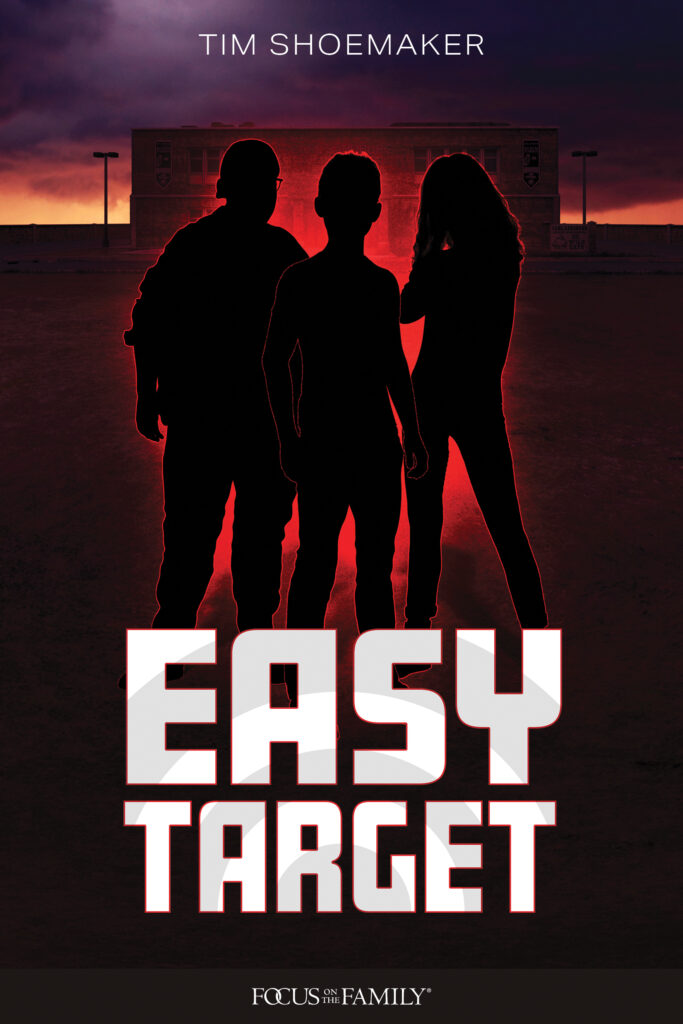by Tim Shoemaker
“It was my favorite book in the whole world. I feel so happy that I might throw up!”

This is my favorite line from a middle grade student’s letter I just received. Okay, I loved her flair for the dramatic, but it illustrates a great point. Fiction impacts readers in powerful ways that nonfiction never can. This is especially true for our kids.
Why is that?
Nonfiction enters through the head—and it often stays there. It’s a total brain thing. Often kids read nonfiction because they have to. A person can ingest textbook knowledge without it changing how they live.
A story, on the other hand, enters through the heart. Our kids read fiction largely because they want to. They resonate with the desires, wants, and needs of the characters. In a very real sense, they experience the story right alongside the characters in the book. We all learn from experiences, and so a good story has the ability to give readers experiences they can truly benefit from.
- They see the consequences of careless words, bad choices, hidden sin … and resolve in their heart not to make the same missteps.
- They feel a character’s pain … and become more sensitive to the hurting.
- They cheer on characters to attain goals … and become more dedicated to reach for their own goals.
- They see redemption is possible … even for the person who has really messed up.
- They see that often what a character wants is not what they need. And that transfers to their own life.
- They see that even when all hope is lost … God often makes a way.
Stories are powerful. They hold a reader’s attention … and their heart. Often they cause readers to see life, others and even themselves differently.
Remember the story in 2 Samuel 11-12 where King David sinned by taking Bathsheba and having her husband killed? He continued to function as king almost as if nothing happened. He knew what he did was wrong, but it seemed the truth hadn’t impacted his heart.
So God sent the prophet Nathan to David with a story about a poor man with a beloved lamb. Nathan told how a guest arrived at a rich man’s home. The rich man took the poor man’s lamb—and slaughtered it to feed his guest.
David was furious—and demanded that the rich man pay for what he did. Nathan simply said, “You are that man.” With that story, the awful truth of what David did moved from his head—and penetrated his heart. It impacted him deeply … and we have Psalm 51 as a result.
You want to impact readers—especially kids—with truth that moves them to their core? Introduce them to great, well-crafted fiction. Clean stories. Ones where parents aren’t made out to be buffoons. Stories that teach His truth in totally non-hokey ways. Don’t miss the positive effects a story can have on your kids—even if they don’t like to read. Read to them. You can get many stories as an audio book, too.
Gaining head knowledge from nonfiction books is fine. But don’t forget—or underestimate—the need for fiction. God designed us so that stories get right to our heart. He uses stories to move and change us. Sometimes he uses a story to make us feel things we wouldn’t have otherwise … like being so happy that we think we might throw up.

Tim Shoemaker is the award-winning author of the Code of Silence series and a popular speaker, especially for school assemblies. When he isn’t on the speaking and teaching circuit, he’s busy working with kids and writing more great stories!
He’s the author of eleven books, including Super Husband, Super Dad; Code of Silence; Back Before Dark; Below the Surface; Smashed Tomatoes, Bottle Rockets … and Other Outdoor Devotionals You Can Do With Your Kids; Dangerous Devotions for Guys; and more.
He speaks for schools, churches, and parachurch organizations (such as Focus on the Family, Iron Sharpens Iron Men’s Conferences, International Network of Children’s Ministry, and the Moody Pastors’ Conference). He also speaks at men’s retreats, women’s gatherings, couples retreats, youth worker conventions, homeschool conventions, and writers’ conventions and conducts Family Devotion Workshops all across the country.